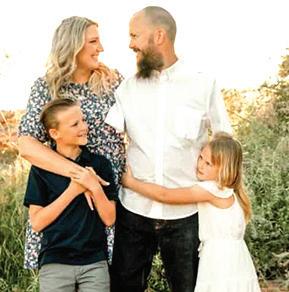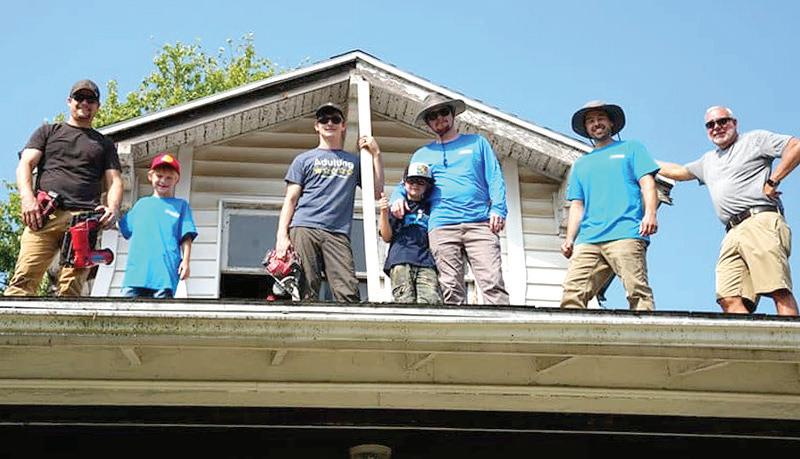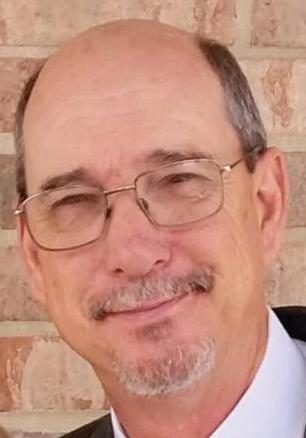Illinois Baptist















Special section inside








IBSA BOARD MEETING
Budget vote coming in November
Springfield | The IBSA Board of Directors met Sept. 16 and heard plans for expanded collegiate ministry in 2026 during what was likely Nate Adams’ final report to them as executive director. Adams announced his retirement plans in February, with a new executive director expected to be in place when the board meets in March next year. The board heard an update on the search for Adams’ successor,


a financial report, and news about the November 4-5 Annual Meeting at the Crowne Plaza in Springfield.
Jeff Logsdon, who is chairing the search committee, reported the committee has received “several strong resumes” and their goal is to announce a new executive director at the annual meeting with a start date in January.
In his report, Adams said IBSA will pivot its collegiate ministry strategy in 2026 to partner with local churches, which will supervise campus ministers, increasing total funding for partnership contracts from $60,000 to $100,000. According to Adams, this will “avoid new legal complexities around contract employees and


‘Green’ theology P. 12
CONNECTIONS
My yellow checklist
Doug Munton P. 9
BRIGHTER DAY
Lydia’s purple reign
Meredith Flynn P. 11
FAMILY REUNION
A ‘blue’ solution
Nate Adams P. 2





The Illinois Baptist staff
Editor - Eric Reed
Contributing Editor - Lisa Misner
Graphics & Production Manager - Nic Cook
Team Leader - Ben Jones
The general telephone number for IBSA is (217) 786-2600. For questions about subscriptions, articles, or upcoming events, contact the Illinois Baptist at (217) 391-3127 or IllinoisBaptist@IBSA.org
The Illinois Baptist is seeking news from IBSA churches. E-mail us at IllinoisBaptist@IBSA.org to tell us about special events and new ministry staff.
POSTMASTER: The Illinois Baptist is owned and published every month by the Illinois Baptist State Association, 3085 Stevenson Drive, Springfield, Illinois 62703-4440. Subscriptions are free to Illinois Baptists. Subscribe online at IBSA.org.

Total giving by IBSA churches as of 8/30/25 $3,414,739
2025 Budget Goal to date: $3,995,653 2025 Goal: $6 Million


As I was preparing for my first IBSA Annual Meeting as Executive Director almost 20 years ago, I remember one long-time staff remember exclaiming, “I just love the Annual Meeting! It’s like a big family reunion.”
Having just moved back to Illinois three months earlier, I didn’t yet share his enthusiasm. I was still meeting new people almost every week and only beginning to get a feel for different personalities, preferences, and needs. It seemed like every meeting was full of new faces whose names I didn’t know yet. So, even among so many new friends, I sometimes felt alone.
But then came that first Annual Meeting. Walking the halls of the Crowne Plaza hotel in Springfield, I started recognizing people. First it was friends of my parents, then people I had met once or twice in a meeting, then one pastor or associational leader after another.




















The name tags helped. Sometimes I knew only a face, and the name tag made the connection. Sometimes another person and I thought we recognized each other, and our name tags helped us both.
The setting gave us permission to assume that we were both Illinois Baptists. We were both committed to our respective churches, and loved the Bible, and were pursuing the Great Commission. Whether we knew each other well yet or not, we were family. And however challenging our church or ministry situations might seem, we were not alone.
Then came my second annual meeting, and my third. And somewhere along the line, I also began exclaiming, “I just love the Annual Meeting! It’s like a big family reunion.”
That’s why I encourage every pastor, and messengers and guests from every IBSA church, to broaden their ministry network and come to this year’s IBSA Annual Meeting. Perhaps you already know the joy of that family reunion. But even if you’re relatively new to your church, or to the state, or even if you’ve not attended often before, please come.
For one thing, this is my last meeting as IBSA Executive Director, and I’d like to see you, and to thank you for your church’s partnership, or perhaps to meet you for the first time and introduce you to some folks. I’d like you to know more of your family, and to remember you’re not alone.
This annual gathering attests we’re not alone.
Walk the hallways and read the name tags and introduce yourself. Peruse the exhibit hall and talk to someone who has a resource or opportunity that fits your church. Attend a Wednesday morning workshop that addresses a special need you have. Sit beside someone in the big meeting room and tell them your story and ask them to tell you theirs. Then stand and sing. Pray and listen and interact with hundreds of other Illinois Baptists, from all regions of the state. Feel in your heart and spirit that you are not alone.
This year especially, we as Illinois Baptists and Southern Baptists are celebrating 100 years of biblical unity as expressed in the first Baptist Faith and Message, and 100 years of missional cooperation as expressed in the Cooperative Program. Though it sometimes can feel like it, our generation of Baptists is not alone in history either. And we have always been stronger together.
The word family can stir up a variety of images, both negative and positive. “Family feud” speaks of conflict and broken relationships. “Family first” reminds us that there’s nothing more important. What about family reunion? I guess it depends on the family, on whether they make the effort to keep hanging out together. And that depends on individual family members, like you and me.
Nate Adams is executive director of the Illinois Baptist State Association. Respond at IllinoisBaptist@IBSA.org.
Continued from page 1
taxes (while) fostering accountable partnerships.”
The sale of the former Urbana campus ministry building at the University of Illinois will be completed in September. The sale price of approximately $385,000 (minus sale expenses) will be allocated to a fund to expand collegiate ministries to new campuses. The building, a residential home, was not well suited for current campus ministry strategies where on-campus meeting space is now readily available due to Illinois law.
Meanwhile, at SIU Carbondale, significant renovations, including a new roof, and volunteer rehab work has revitalized the student ministry building there. It will serve as a hub for multiple ministries, including a church plant, Christian athlete outreach, and international student groups aligning with the new IBSA strategy.
“When we survey our churches, they say ‘help us reach the next generation.’ And so we think this is a vital area for us to step into at a higher level,” Adams said.
At the November 2025 IBSA Annual Meeting, churches will be encouraged to support or partner with collegiate ministries, especially on new campuses, or develop strategies to engage nearby college campuses.
‘Good news’ overspends
Despite flat income and rising personnel costs, the 2024 audit confirmed IBSA’s financial stability.
“God’s provision has sustained the budget,” said Adams. The Board approved what Adams called ‘good news’ overspends. One such overspend of $70,000 was due to the 20% growth in 2025 Summer Camps, which produced a record attendance of 1,175 participants. All but $5,000 is expected to be recovered by camp revenue.
Other approved overspends were prompted by the larger than anticipated response of churches participating in Church Renewal Journey ministry and pastoral coaching and revitalization processes.
The 2024 IBSA audit conducted by Batts Morrison Wales & Lee, P.A. was “qualified” due to unavailable 2023 and 2024 Baptist Foundation of Illinois (BFI) audits. In an audit update to the IBSA Board, BFI Executive Director Doug Morrow said changes in how the Foundation does its “accounting has resulted in a delayed audit.”
“BFI anticipates being caught up with our audits by the end of the year, and back in sync with the 2025 audit in the first part of 2026. During this season of delay, BFI has made available evidence of our asset holdings publicly (a step we anticipate maintaining even after our audits are caught back up) at BaptistFoundationIL.org,” Morrow stated in an email following the meeting.
The Board approved the 2026 IBSA Budget based on a Cooperative Program goal of $6,000,000 and a Cooperative Program ratio of 56.5% for IBSA and 43.5% forwarded to national SBC. Messengers will vote on the budget at the annual meeting.
The Board welcomed new members James Kim, Meadow Heights Baptist Church in Collinsville; Jeff Miller, FBC Marion; and Jim Wilson, FBC Atwood.
Newly elected officers are Chair Paul Cooper, pastor, Marshall Baptist Church (previous Vice Chair); Vice Chair Scott Douglas, pastor, Fairview Heights Baptist Church; and Secretary Kirk Kay, pastor, Immanuel Baptist Church in Benton.
Members rotating off are Drake Caudill, Carrel Starkey, Noah Lee, and Rob Schneider.
WELL DONE— The IBSA Board recognized their outgoing officers (l-r): Secretary Noah Lee, pastor of Tremont Baptist Church; Vice-chair Paul Cooper, pastor of Marshall Baptist Church; and Chair Bruce Kirk, pastor of Alpha Missionary Baptist Church, Bolingbrook.






Washington, DC | Gary Hollingsworth, retired Executive Director of the South Carolina Baptist Convention and longtime pastor in Alabama, was named interim president of the SBC’s Ethics and Religious Liberty Commission (ERLC) Sept. 16. Trustees elected Hollingsworth unanimously in their regular board meeting to fill the post until a permanent successor to Brent Leatherwood is named.
“Dr. Hollingsworth brings a unique combination of executive leadership, relational depth and pastoral heart that will serve Southern Baptists well as he leads the ERLC through this season of transition and opportunity,” trustee chair Scott Foshie said. “We are thankful for his obedience and availability to be used by God in this way to serve and empower churches as we take the gospel to our culture and the public square.”
Executive vice president Miles Mullin of Missouri had served as acting president since Leatherwood’s July 31 resignation. He will remain in his staff position. A search committee was established last month.
Mullin told trustees that executive leadership decided to break ties with the Evangelical Immigration Table (EIT) earlier this month. “We feel we need to take a more independent posture on our immigration-related work,” Mullin said. The EIT was founded by former ERLC President Richard Land, Jack Graham, Ronnie Floyd, J.D. Greear and others in 2012, but had recently come into question about funding from a liberal philanthropist, George Soros.
Trustees responded to a motion adopted by messengers at the 2025 SBC Annual Meeting in Dallas recommending that the ERLC “appoint a special task force to study the immigration situation currently affecting our country and to provide a biblical stand on immigration.”
Foshie will commission a task force to bring recommendations to ERLC trustees in Spring 2026. ─with


Orem, Utah | A young man from Illinois was sitting in the front row when Charlie Kirk was shot and killed. He saw everything.
“I wasn’t necessarily drawn to that rally because of the politics,” he said. “There’s a lot of hate generated with debating and from both sides. But I just wanted to support a Christian man in his efforts to educate other people on Jesus Christ.”
Sept. 10 was Trent Cooper’s birthday, and he arrived early to hear Kirk. That placed him about 20 feet away from the speaker’s tent on the campus courtyard, with about 3,000 students around.
Kirk was starting his “American Comeback Tour” in Orem, Utah. Both Christian apologist and political provocateur, Kirk had developed a wide following with videos of his debates with college students at his “Prove Me Wrong” table.
“For me it was his faith (that drew me), but for a lot of my friends, it was that he said it’s OK to be a straight, white male in America again,” Cooper said. “He defused radical beliefs with just a few words sometimes.”

A graduate of Cerro Gordo High School in Illinois, Cooper is a new student at Utah Valley University, in his first semester studying business. He arrived early at the terraced amphitheater—and landed on the front row of history. The killing right in front of him was bloody, brutal, and traumatic. The single shot came as Kirk was answering a question about mass killings.
“Charlie had tossed out Trump hats. In that moment, I realized the hat might make me a target, so I threw it off, and then we all ran.” Back at his apartment with his roommates, they hugged, cried, prayed, and waited for the adrenaline-fueled anxiety to subside.
Soon after, his grandmother was sending her friends prayer requests for the grandson who had frequently joined her at one of our churches in Central Illinois.
Galvanizing young people
Trent Cooper is representative of millions of young adults who flocked to Charlie Kirk and his message. Kirk did not hold back from his frank analysis of the liberal culture and his conservative political views that were rooted in his evangelical Christian faith.
“I didn’t always agree with everything he said,” stated Richard Ulrich, pastor of Lincoln Avenue Baptist Church in Jacksonville, “but I appreciated that he was having the conversations. I especially appreciated his willingness to integrate his faith into those conversations, instead of just sharing his political ideology.”
As journalist Dave Weigel posted on the day of the killing, “Pulled this quote from my last in-person interview with Kirk. His pitch wasn’t just ‘join the GOP, you’ll get lower taxes’—it was that you could give yourself to Jesus Christ and have a life worth living.”
Weigel, who formerly wrote for the Washington Post and now reports for Semafor news platform, posted excerpts from his meeting with Kirk at the 2024 Republican National Convention.
“Younger audiences love this contrarian heterodox approach,” Kirk said. “The mantra is not that if you’re a man, you’re an oppressor. It’s not that having children is a plague on the planet… We’re here


to say actually, no, having children is a gift from God and it’s a wonderful thing… We’re saying marriage is awesome and you can reject hook-up culture.”
They heard Kirk—by the millions. Kirk founded his political action group, Turning Point USA, when he was 18. Kirk was an Illinois native, born in Arlington Heights and reared in Prospect Heights in the Chicago suburbs. Kirk’s faith was shaped under the teaching of James MacDonald at Harvest Bible Chapel in Rolling Meadows.
Age 31 at the time he was killed, Kirk had brought masses of young adults to conservative ranks. President Trump, in public statements of grief, credited Kirk with significant turnout in his re-election. Kirk continued to have influence in the White House.
But it is his influence with young men and the hope of an awakening among them that some Christian leaders especially recall.
The morning after Kirk was killed, students at Southern Seminary in Louisville gathered in chapel. Citing Kirk’s sway with young men, especially those at their undergrad Boyce College, President Al Mohler scrapped the usual service and brought
lize their culture, their culture to Christ.”
Cooper was immediately planning to prayer walk the Utah campus with others from the church plant he has joined who are trying to reach the mostly Mormon community. He was expecting the hard questions.
Now we wait to see who is willing to step up next.
Baptists lament and rally
In Marion, Redemption Church, pastored by Robbey Smith, held a candlelight vigil in the town square. It was attended by hundreds, most of them young adults. The church baptized 40 people at the event. Social media showed similar remembrance services were held on multiple college campuses.


scholars to the platform, among them Illinoisan Andrew Walker.
“I would argue that there’s no one who has been as explicit about their Christian faith as someone like Charlie Kirk,” Walker said. “And especially bringing that down to a youth culture and, happily, seeing great progress and transformation in his own understanding of how he integrates his faith in his politics.”
A recent post by Kirk reported by the New York Times demonstrates that: “The future is bright for a generation of Christians who are willing to evange-
On the Sunday after Kirk’s death, many Southern Baptist churches had special prayer in response. They prayed for Kirk’s widow, Erika, and his two small children, and for the millions who followed his social media accounts. (At well over 7 million on Instagram, YouTube, Tik Tok, and X before his death, another 8 million joined within three days of his death, CNN reported.)
SBC leaders called for lament and also for justice for the man charged in his death. The broader issue of violence in our culture was also raised, as news reports and pray-ers cited the recent killings of politicians and school children in Minnesota, and a Ukrainian war refugee stabbed to death on a bus in Charlotte.
“Political violence is a grave sin and it represents a threat to our nation and its government. The murder of Charlie Kirk is a grave warning to us all as we consider the health of our nation and society,” the statement said.
Endorsed by all 12 SBC entity leaders, SBC 1st Vice President Daniel Ritchie, and 2nd Vice President Craig Carlisle, the statement is a call for justice in light of a wave of violence in the United States, SBC President Clint Pressley told Baptist Press.
“Scripture calls God’s people to hate what is evil and cling to what is good and to do so in the name of the Lord Jesus. We believe this statement is a way we can do that while upholding the gospel,” he said.
─Eric Reed
And everywhere he goes
Hannibal, Mo. | “Some of you all are sitting there wondering what happened to homeboy’s arms… It wasn’t a bear, it wasn’t a shark…”
“This is how God fearfully and wonderfully made me,” said evangelist Daniel Ritchie using humor to diffuse any anxiety felt by the students gathered for chapel at Hannibal LaGrange University. “Whatever you all do with your hands, I do with my feet,” he said.
He was speaking during the university’s Grow Week in September to encourage spiritual growth within the campus community.
“My struggle was never physical,” he said. “My struggle was never figuring out how to do things with my feet. My struggle was feeling like I’m not enough.”
Messengers to the Southern Baptist Convention in Dallas this year said Ritchie is plenty. Ritchie was elected to serve a one-year term as First Vice President. He and his wife, Heather, live in Raleigh, N.C., with their two children where they attend The Summit Church, pastored by former SBC President JD Greear.
In an interview with the Illinois Baptist, Ritchie described his role “as a connector” and “primarily serving as a backup if needed” to the president who does “most of the decision making.” Clint Pressley, senior pastor of Hickory Grove Baptist Church in Charlotte, N.C., is currently serving his second term in that position.
According to Ritchie, his is a “low maintenance” role where “I can just be eyes and ears to listen to the needs in our Southern Baptist Convention.”
Ritchie said he has no immediate plans to run for higher office. He had conversations with Greear who “laid out just the weight of the position of the president in the convention. I think it certainly opened my eyes to see, maybe I don’t want to climb that mountain anytime soon.”
So far there haven’t been many surprises. “I’m the ‘break glass in case of emergency’ guy,” he said. “I’m here to keep the continuity of just who we are as a convention, but I really don’t need to do that much beyond that, beyond praying for Pastor Clint.”




Springfield | Attorneys for the Thomas More Society appeared before the Fourth District of the Illinois Appellate Court on August 26 to defend the religious freedom of the Illinois Baptist State Association (IBSA) and challenge the state’s mandate requiring all health insurance providers to include abortion coverage in their plans.
The Society stated afterward, “…we await (the court’s) decision, which will determine whether this conscience-violating mandate will be rolled back or if Illinois will be permitted to continue on the path of moral coercion.”


Ritchie served as a student pastor for 13 years, finding a place that made the most of his abilities. Finding a place in the world is one of his regular themes.
Ritchie encourages young people who feel called into missions or ministry to seize every leadership opportunity available to them. “Some local churches offer internships to young folks that allow you to get a peek into what ministry is like,” Ritchie said.
Ritchie urges churches to actively identify, equip, and call out future leaders to fulfill the Great Commission, whether in vocational ministry or marketplace roles.
“If any of my kids felt called to the ministry,” Ritchie said of his years in student ministry, “I would find ways to plug them in, whether that was as a ministry intern somewhere within our church or just in leadership roles.” This gave the students “a taste of what ministry is like to apply their talents and a more robust understanding beyond just what they saw from the pews.”
Ritchie has traveled telling his story for seven years now. He began to feel an even greater “heart for lost people to know Jesus as their King” and made the transition from pastor to evangelist.
At age 41 he’s one of the youngest evangelists in the SBC and warns of a looming shortage due to retirements. “The guys that are at least around my age, I could count them on one foot.”
Back at the HLGU chapel service, after reading from 1 Corinthians 15:8-11, he told the students, “Paul is saying, I don’t find my worthiness in what people say about me. All that matters is the grace of God that has made me.”
He emphasized, “You all, don’t fall into the trap that our world says that you have to attain a certain level of success for your life to matter and for you to have a legacy that lasts.”
Daniel Ritchie told his life story in his book, “My Affliction for His Glory.” The chapel messages are posted on HLGU’s YouTube Channel, youtube.com/@hlguofficial.
IBSA sought relief for its entities and cooperating churches from the 2019 Reproductive Health Act requiring abortion coverage. This court appearance was an appeal of a 2024 ruling against IBSA.
“From the outset, lawmakers assured us that this legislation would respect the rights of people of faith,” attorney Peter Breen said, however “these assurances have proven to be nothing more than empty promises, reflecting a stark reality of broken trust and deceit.”
The only health insurance plan available in Illinois without mandated abortion coverage is offered by an out-of-state provider. That option is cost-prohibitive and insufficient to meet the needs of IBSA’s employees and their families.
“Our clients are not asking for special treatment, they are asking for the freedom to live and work consistent with their faith,” attorney Matt Belz said. “The State of Illinois should not be in the business of coercing people of faith into paying for abortion, in violation of their deepest moral convictions.”
Four abortion facilities in Illinois closed prior to Congress’ passage of the bill that defunded Planned Parenthood in July. Financial challenges were the reason for the closures in March cited by Planned Parenthood of Illinois (PPIL). Nationwide, 58 abortion providers have shut down operations this year.
The Illinois facilities were in Bloomington, Decatur, Englewood, and Ottawa. Three of them gave abortion drugs to women who were up to 11 weeks pregnant, which is “one week after the approved timeframe by the FDA,” according to Susan B. Anthony Pro-Life America, while the Englewood site provided abortion-inducing drugs up to 12 weeks of pregnancy.
PPIL reports a 47% increase in abortion clients in Illinois since the U.S. Supreme Court overturned Roe v. Wade in June 2022, with over a quarter of those being women from at least 40 other states.
Planned Parenthood still operates 13 facilities in Illinois.
─ IB staff
Pastors once held the most respected positions in the community, up there with doctors and lawyers. Now nurses, grade-school teachers, and military officers are at the top. Pastors have dropped to more than halfway down the list, down there with judges, bankers, and nursing home operators. Of 23 professions, clergy ranked 10th in a survey of trustworthiness, with a 30% approval rating.
Churches seeking pastors were inundated with resumes as recently as a decade ago. Even the smallest churches heard from dozens of men who wanted to be called to serve them. Now, even the largest churches struggle to find pastors. The search made ubiquitous by the internet produces a mere handful of candidates, many clearly unqualified.
Doesn’t anyone want to pastor anymore?
Lifeway Research, which conducts the annual trust poll, released a survey on former pastors’ opinions on their own vocation. Here are a few eye-opening results.
While only 1% of pastors quit each year, 43% of those say they resigned due to a change in their calling
Others cited
Conflict 18%
Burnout 16%
Family 10%
Personal finances 10%
Responses to the rest of the reasons were less than double digits. It is worthy to note more than 43% said they experienced significant church conflict in their last year in ministry. While 53% moved to another ministry position, 43% never returned to ministry.
On the positive side, 65% of former pastors said their last church provided genuine encouragement for their family, and 72% said their spouse was enthusiastic about their life together in ministry.
If that’s so, would they go into ministry again, if given the opportunity?
The 2025 report was surveyed May 5 – July 6. The full report is available at Lifeway Research.


Ryan Hall: Would I do it again?
ou’ll die a thousand deaths for your church plant.”
I was cleaning the basement when I found this written on an old training document Lauren and I were given during our church plant residency in 2008. I thought, “Well, they tried to warn us.”
But after 12 years at the same church plant, we felt ready to throw in the towel.

Some people were trying to get me fired, and we had low hopes of things working out. By God’s grace, we stayed, and in September we celebrated 16 years as a church. If I could go back to the beginning, would I do it again?
Well, let me relive the story, and then I’ll decide.
In the summer of 2009, we were promoting our church launch. The Great Recession had wrecked the economy and cut the stock market in half. Our launch team met in a rundown Baptist church that smelled like urine and had no AC. We went to fests, handed out invites and balloons, and mailed postcards to the community.
That fall, God was gracious, and we launched strong. At our first baptism service, a whole family got baptized while a grandmother, who had prayed for them for years, wept in the second row. When we asked the father how he found our church, he said he was at a fest and saw a guy walking around with a beer can helmet, and one of our balloons was tied to the beer can. Satan must have forgotten to assign someone to “beer can balloon duty” that day.
After launch, we met in eight different locations and learned to live with change. One weekend, we met in the gym of a high school, and the heat wouldn’t turn off. It was 80 degrees when the service started. We called it “Sauna Sunday.” Another week, a church let us rent their building, and our young adults found their potluck meal in the fridge on Saturday night and ate it all. Our youth group met at a high school that had a major gas leak in the kitchen. The firefighters showed up and said, “That was almost a big one!” Ministry happened everywhere. One 8th grader shared this testimony: “I was at Taco Bell eating a five-layer beefy burrito when I accepted Christ.” God impacted many people “on the go.”
On September 6, 1982, I was a student at Midwestern Seminary. That day I walked into the kitchen at the dormitory and saw a young woman. There was a spark in her eyes that lit a fire in my soul. On October 26, we went on our first date. On Thanksgiving Day, I asked her to marry me. On the following February 4, we traveled to a small chapel in downtown Kansas City and she became my wife. That was a fast start to what has become a 43year journey.

I was 25 years old when it began. I knew I had been called to ministry and was excited about that call. I was full of ambition but short on knowledge. I had zeal but lacked the wisdom to hone my ideas and the skill to bring them to fruition. I needed a wife who could see me in my rough form, and yet recognize the gifts and call of God on my life, and help me develop them.
God was gracious. In his providence, he sent me a wife who was up to the challenge. I concur with the ancient proverb: “An excellent wife who can find? She is far more precious than jewels. The heart of her husband trusts in her and he will have no lack of gain” (Proverbs 31:10-1, ESV).
Continued
I do not believe there is anything more special or important than the call of God on a man’s life to be a pastor. If that pastor is married, it is a blessing when his wife is supportive of his pastoral ministry. Perhaps it is not essential that a pastor’s wife feels called to that role. Some women do, others don’t. But it is extremely important that she recognizes the uniqueness of her husband’s work. He needs his wife to be understanding of the schedule, the interruptions, and the confidentialities he incurs in being a pastor. Ministry couples are not just “man and wife,” they are “pastor and wife.”
as they grew up and continues to give guidance to our autistic adult son who lives with us. I value greatly her love and support for me.
I don’t see how I could have done it without her.
Looking for ideas? Marshall Baptist pastor Paul Cooper says he gets a new surprise every year.
He shared a recent list:
● A flash mob on a Sunday morning singing me a song.
“An excellent wife who can find?”
My wife, Jeanette, felt called to ministry. She has exercised that call by being a pastor’s wife and has found joy in that capacity. She has served as a teacher, mission’s leader, and on various committees in our churches. She has been on twelve mission trips and has enjoyed serving in various capacities in our denomination. Most importantly, she gave care to our three children
A woman was walking her dog on Sunday morning, and the dog yanked her through the parking lot as I was getting out of my car. She asked if there was a church meeting at the school, and I said yes and invited her. She said her dog had never pulled her in that direction before. She became a regular attender.
My mom attended our church plant for five years and then she got saved. I had the joy of baptizing her in my old high school swimming pool. After every baptism service there, the pastors would jump off the diving boards to celebrate.
Eventually, we bought our own building. The broker who found us our building got saved at our church and shared the gospel with 500 other brokers at a business breakfast before he lost his battle with throat cancer.
Two people who had lost spouses were attending our GriefShare night. One younger woman mentioned how her grandfather used to hand out Bibles at the restaurant he owned. When she said his name, an older man said, “Wait, what is his name?” She repeated it, and he opened his Bible and saw her grandfather’s name written inside. He fell back and burst into tears. He said, “My whole life, I wondered who this man was that gave me this Bible, and now I meet his granddaughter at this church!”
One of our deacons asked me to visit his unsaved
I have the tendency to see the immediate and focus on the negative. Jeanette is better able to see the larger picture and view things from a more positive perspective. When encountering interruptions, I would often get frustrated, but Jeanette would remind me that “interruptions are a part of ministry.” If I was dealing with a difficult situation or person, Jeanette would listen and sympathize to a point, but she never ignored the truth. If she saw error in my methodology, she was not afraid to tell me and suggest how I might do better. Her loving confrontation became growth points in my pastoral ministry. We have experienced successes and we have endured hardships in ministry. Sometimes I have been tempted to quit. There are two reasons that temptation never got much of a foot hold. The first is the call of God on my life. The second is that if I had ever tried to quit, the wife God gave me would have put a stop to it!
─Brent Cloyd is Associational Mission Strategist for Greater Wabash Baptist Association.

brother in the hospital. His brother had coded three times the night before, and he was on death’s door. I walked in and saw him full of tubes and monitors. I said, “Well, I’ll get right to the point. You died three times last night, and you probably won’t live through today. Are you ready to ask Jesus to be your savior?”
A tear rolled down his cheek, and he nodded yes. He prayed with me, but he couldn’t talk yet. Later, he gave me the middle finger and tried to punch me in the groin because he was so mad that he became a Christian. Praise God, he lived another month, he was able to talk again, and he thanked me for leading him to salvation. We were planning his baptism barbecue when he hit a setback and
● Scheduling a different person every day of the month to bless me with a gift.
● A daily scavenger hunt to find a different gift from a different family.
● Filling my office with balloons or yard art thanking me.
● Big after-church tailgate cookout.

went to glory.
One Saturday, we went downtown to hand out literature that said, “FindGodAgain.com,” an outreach website we launched. A man came up to me holding the tract and said, “How did you know?”
I said, “Know what?”
He said, “I haven’t talked to God in three years. But today I said, ‘OK God, I’m ready to talk to you again.’ Now I’m holding something that says FIND GOD AGAIN. How did you know?”
I said, “Well, either we’ve been stalking you for three years, or God loves you.” He cried and recommitted his life to Christ by the Buckingham Fountain.
When I reflect on 16 years at the same church plant, I remember many dark days. My wife and I shared many tearful conversations as we discerned what God was doing and where he was leading. And we remember that they warned us we would die a thousand deaths for our church plant. But we’ve seen Jesus touch a thousand lives through our ministry. So, If I could go back to the beginning, yes, I would do it all again.
“For we are always being given over to death for Jesus’ sake, so that his life may also be revealed...” (2 Cor. 4:11).
─Ryan Hall is founding and senior pastor of Anchor Church Palos in Palos Heights.
The state missions week started with Mission Illinois Serve Day events on Sept. 13. Some churches planned their own outreaches. Others joined the dozens of partnership projects organized around Peoria and Mt. Vernon. “We wanted to provide simple, ready-made opportunities for people to experience both the needs and spiritual opportunities here in our home state, and the connection to their larger Baptist family who are all on the same mission,” IBSA’s Shannon Ford said.

The Community Clothing Boutique had jeans of all kind and sizes—free! Raymond Baptist Church turned their regular service into a special witness.












As the morning sun heated up the day, men and boys worked on a leaky roof. Women and younger children raked leaves and worked on landscaping. Around Mount Vernon they also had block parties, clean-up crews, kids’ events, door-to-door invites, and served meals for the homeless. “What a blessing to see over 200 people... at 14 different ministry sites with over 28 churches represented,” Bob Burton, Salem South Associational Mission Strategist, said of his downstate partnership.
























“In a world that feels heavy right now, sometimes the smallest acts of kindness can remind us that there’s still light, hope, and joy,” posted Celebration Church. “Today, our church family gave away 200 FREE Dr. Peppers downtown.”



People from all over and from here at home came to share the gospel in word and deed.
“We had a great day,” Tremont Baptist Church Pastor Noah Lee said. “Teams were able to pray for most of the areas of town, and left door hangars letting people know they had been prayed for. We also had good conversations with people on the street about faith.”







“Never have we needed to connect more, while we have never been more disconnected.”
I’ve said this sentiment frequently in recent days as I’ve spoken to other pastors and Christians and churches around the Illinois Baptist State Association and the Southern Baptist Convention. With the spiritual brokenness of our generation and culture, believers need each other more than ever. At the same time, pastors, Christians, and churches seem less connected than I’ve ever witnessed.
It seems we tend to diminish the value of missional cooperation. We appear less likely to build healthy relationships with each other. While we may know more about each other, we really know each other less. Is this a good trend? Is our mission more effective without the benefit of denominational unity? Is our ministry better served by social media followers than friendship connections?
Here are three reasons (of many) why we should connect with other pastors, Christians and churches.

We can learn from each other. I recently spoke with a group of IBSA pastors who were very diverse. Some of them were young and some not so young. Some had planted the church they served while others were in churches more than a century old. We were in churches that served very diverse communities. But we learned from each other. We saw new perspectives and considered different strategies. We “sharpened each other as iron sharpens iron.”
A strong partnership is more effective. We have a greater impact when we work together. I love that the churches of IBSA are independent. But I also love that we choose to cooperate to impact the world. This partnership has served us well. We are stronger in evangelism and missions and church planting and education and helping people in need and so many other things when we do those things together.
We can help each other in hard times. When I am discouraged, I can talk to my friends and find

encouragement. When I am perplexed, I can get their counsel. When I am grieved, I can find their comfort. Hard times come in life and in ministry. You will need others and others will need you. We help each other carry burdens. We care about each other and help each other persevere.




Attend the IBSA meeting this November, and maybe attend a meeting of your local association.
Meet with some other pastors or church leaders and get to know their names and needs.
Plug back into our imperfect denomina- tion and state convention.
Let me encourage you to connect with some action items. After all, we have reasons to connect! I’ve recently talked to a host of pastors and leaders who have resonated with the need for connections. They all expressed a need for more and deeper relationships with others who share their same convictions and mission. Maybe we are beginning to see again how valuable our connections really are!
Purposely interact with some churches and Christians who are from different backgrounds and stages of life.
Doug Munton is pastor of First Baptist Church of O’Fallon. He is serving as IBSA President.


Worship leaders and songwriting duo Shane and Shane collaborated with Southern Baptists to help create SBC Worship. Their website provides training and resources with free and premium accounts available. Thousands of SBC churches have signed up since its launch in
June. Lifeway Worship offers a la carte purchase of arrangements, charts, and sheet music of hymns and contemporary worship songs. The SBC publisher had planned to pull the plug on the service in 2023, but relented after outcry from worship leaders.
Ignite Evangelism Conf.
10/5-6 Chatham Church
10/19-20 FBC Marion
What: A regional two-day event helping you lead your church to encourage, inspire, and instruct people to effectively share their faith.
Format: Rally on Sunday 6-8 p.m. Training on Monday 8 a.m.-noon, lunch provided Info: IBSA.org/events
Contact: JanetSheley@IBSA.org
October 9
All Church Tech Training
Where: FBC Marion
When: 6-8:30 p.m.
What: Pastors, ministry leaders, and workers are trained to leverage the best tools to disciple your church and reach the community.
Info: IBSA.org/events
Contact: TammyButler@IBSA.org
October 10-11
Northern Illinois Women’s Retreat
What: An extended Sabbath rest for ladies, with fellowship, fun, and to grow in their walk with the Lord.
Where: Streator Baptist Camp
When: Friday 5 p.m. – Saturday 5 p.m.
Cost: $50 for Friday and Saturday, $35 for Saturday only
Info: IBSA.org/events
Contact: JacobKimbrough@IBSA.org or CarmenHalsey-Menghini@IBSA.org
October 11
Ignite Hispanic Training Event
What: Help your church reach lost people. Where: Iglesia Misionera Bautista North Avenue, Chicago
When: 9 a.m. - 2 p.m.
Cost: Free, includes dinner and resources
Info: IBSA.org/events
Contact: JanetSheley@IBSA.org
October 18
Kids Ministry Conference
What: Training for kids ministry, with breakouts and a sneak peek at Lifeway’s VBS 2026
Who: Keynote speaker is Brian Dembowczyk, author of Gospel-Centered Kids Ministry. Where: IBSA Building, Springfield
When: 9 a.m.-2 p.m.
Cost: $15, includes lunch
Info: IBSA.org/events
Contact: MichaelAwbrey@IBSA.org
October 29
One Day: Chicago
What: From Send Network, inspire and equip planters, pastors, and Jesus followers to expand God’s Kingdom through church planting. Where: Cityline Church, Niles When: 9:25 a.m. – 2:30 p.m.
Cost: Free Info: namb.net/send-network/events/ one-day-chicago/
Contact: Snichols@namb.net



November 30-December 7
Lottie Moon Christmas
Offering & Week of Prayer
What: Annual giving to international missions
Where: Your Church
Info: IMB.org/generosity/lottie-moon-christmas-offering
November 4-5
IBSA Annual Meeting
What: Messengers and guests from the nearly 900 churches that comprise IBSA meet for business, reports on SBC work in Illinois and worldwide, and inspiration. See full schedule and list of breakouts in section B.
Where: Crowne Plaza, Springfield Info: IBSAannualmeeting.org
Contact: BarbTroeger@IBSA.org


November 7-8
Forged Overnight
What: A retreat to ignite a fire in young men (grades 6-12) and their leaders to become the man God is calling you to be.
Where: Lake Sallateeska Camp
When: Friday 6 –11:30 p.m., Saturday 8 a.m. – 2 p.m.
Cost: $40 per person
Info: IBSA.org/events
Contact: TammyButler@IBSA.org
November 7-8
AWSOM Overnight
What: Our premiere event for girls (grades 5-12) to grow as disciples and see their part in God’s Kingdom!
Where: Tabernacle Church, Decatur
When: Friday 6 p.m. – Saturday 3 p.m.
Cost: $35, includes breakfast and lunch on Saturday
Info: IBSA.org/events
Contact: TammyButler@IBSA.org
November 20-22
Streator Men’s Bible Study
What: A three-day men’s Bible study, led by Dr. Michael Taylor, into the I Am’s in the Book of John plus fellowship and fun.
Where: Streator Baptist Camp, Streator
When: Thursday 1:30 p.m. – Saturday Noon
Cost: $100 per person
Info: IBSA.org/events/streator-mens-bible-experience/



God-fearing woman named Lydia, a dealer in purple cloth from the city of Thyatira, was listening. The Lord opened her heart to respond to what Paul was saying” (Acts 16:14).
The account of Lydia is a blink-and-you’llmiss-it moment in the middle of the Book of Acts. Her story is only three verses long, but they are filled with details that tell us several things about her and illuminate how the Holy Spirit was working in and through the early church.
We know she sold purple cloth, which likely indicates she was a person of means. We know the Lord opened her heart to listen to Paul’s preaching. And we know immediately after she was baptized, along with her household, she urged the apostles to stay in her home.
sweeping the crowds who came to hear them proclaim the gospel. Maybe the Lord of the harvest impressed upon these laborers that their task was to keep telling people about Jesus, and he would handle the rest.
Whatever the reason, they were “persuaded” to accept her invitation, we read in verse 16. Lydia’s conversion, and her immediate act of service, is recorded in Scripture for those of us who have ever needed those same reminders.

I wonder if they exchanged a sideways glance or two as they decided whether to stay at Lydia’s house. This woman is very new to all of this, after all. What if her enthusiasm is short-lived? Can we trust her? That’s probably what I would have thought.
But instead, maybe what happened in that instant is that Paul and his friends decided to trust the Lord. Perhaps they remembered again that it was him—and not them—who was responsible for the changes they had seen
When people come to Christ, especially as adults, it would be easy to let them settle in without requiring much of them in terms of service. We need to see how things pan out, we might say. Certainly, new Christians need training and mentoring and accountability. We all do. But Lydia’s story is a reminder that church leaders can trust the Lord’s leading.
Our own lives are testimonies that he not only draws people to himself, but also calls us to good works prepared ahead of time for us to do (Ephesians 2:10). May we remember that the next time a Lydia enters our lives with a will to serve.
Meredith Flynn is a wife, mother of two, and writer living in Springfield. She and her family are active members of Delta Church.

Send NETWORKING items to IllinoisBaptist@IBSA.org
Park Avenue Baptist Church in Mt. Vernon seeks a bivocational pastor who loves God’s Word, loves his people, and loves shepherding the congregation in its next chapter. Contact Bill Hogue. Resumes may be sent to parkave@mvpabc.net.
First Baptist Church of Tinley Park seeks a bivocational pastor with a heart for service and passion for the gospel. This church in the Chicago suburbs wants leadership for growth and ministry. Apply to fbc.tpil@gmail.com.

Search more church openings at IBSA.org/pastor-search or scan this code.
First Baptist Church Of Grain Valley, Missouri seeks a Spirit-led full-time Lead Pastor
We are missionally and doctrinally aligned with the SBC, the Missouri Baptist Convention and we adhere to the BF&M 2000.
We seek a pastor who will boldly challenge our congregation to fulfill the Great Commission as he preaches and teaches the Word of God without compromise. Competitive salary commensurate with experience and qualifications. Visit grainvalleyfirst. com/pastor to learn more.




Chris Merrit was installed as lead pastor of Tabernacle Baptist Church in Decatur on August 17. He and wife, Alyssa, are the parents of Cayden and Austin. Merritt became a member of Tabernacle in 2005 and joined the staff as Administrative Pastor in 2015. Former pastor Pat Pajak and IBSA Executive Director Nate Adams participated in the installation service.
Barrett Dodd is the new lead pastor of First Baptist Church Pleasant Hill. Dodd earned a BA at Missouri Baptist University and an MDiv. from Covenant Seminary. He and his wife, Lacey, are both from Missouri. They have a daughter, Serenity.
Jonathan Titsworth and his wife, Tara, have come to Highland Avenue Baptist Church in Robinson. He is a graduate of Hannibal-LaGrange University and holds an MDiv. from Southern Seminary. Titsworth served Heritage Southern Baptist Church in Vincennes, Indiana for eight years. The couple has three children.
Joe Cooksey was called as pastor of Summersville Missionary Baptist Church in Mt. Vernon. He counts Centralia High School and SIU Carbondale among his alma maters. He is married to Teresa. The church’s social media reports baptisms three consecutive Sundays in August and September.
On the centennial of the SBC’s statement of faith, let’s explore what we believe and take time to reinforce a solid foundation.
God is the source of all blessings, temporal and spiritual; all that we have and are we owe to Him. Christians have a spiritual debtorship to the whole world, a holy trusteeship in the gospel, and a binding stewardship in their possessions. They are therefore under obligation to serve Him with their time, talents, and material possessions; and should recognize all these as entrusted to them to use for the glory of God and for helping others. According to the Scriptures, Christians should contribute of their means cheerfully, regularly, systematically, proportionately, and liberally for the advancement of the Redeemer’s cause on earth.
Gen 14:20; Lev 27:30-32; Deut 8:18; Mal 3:812; Matt 6:1-4,19-21; 19:21; 23:23; 25:14-29; Luke 12:16-21,42; 16:1-13; Acts 2:44-47; 5:1-11; 17:24-25; 20:35; Rom 6:6-22; 12:1-2; 1 Cor 4:1-2; 6:19-20; 12; 16:1-4; 2 Cor 8-9; 12:15; Phil 4:1019; 1 Peter 1:18-19.
Christ’s people should, as occasion requires, organize such associations and conventions as may best secure cooperation for the great objects of the Kingdom of God. Such organizations have no authority over one another or over the churches. They are voluntary and advisory bodies designed to elicit, combine, and direct the energies of our people in the most effective manner. Members of New Testament churches should cooperate with one another in carrying forward the missionary, educational, and benevolent ministries for the extension of Christ’s Kingdom. Christian unity in the New Testament sense is spiritual harmony and voluntary cooperation for common ends by various groups of Christ’s people. Cooperation is desirable between the various Christian denominations, when the end to be attained is itself justified, and when such cooperation involves no violation of conscience or compromise of loyalty to Christ and His Word as revealed in the New Testament.
Exod 17:12; 18:17ff.; Judges 7:21; Ezra 1:3-4; 2:68-69; 5:14-15; Neh 4; 8:1-5; Matt 10:5-15; 20:1-16; 22:1-10; 28:19-20; Mark 2:3; Luke 10:1ff.; Acts 1:13-14; 2:1ff.; 4:31-37; 13:2-3; 15:1-35; 1 Cor 1:10-17; 3:5-15; 12; 2 Cor 8-9; Gal 1:6-10; Eph 4:1-16; Phil 1:15-18.
Making it relevant:

Look at your church’s budget. What is the amount spent on missions through the Cooperative Program?

Now look at the SBC missions numbers cited in this essay. How many pastors and missionaries were trained?


Those unfamiliar with the biblical use of the word steward may find it helpful to substitute the word manager. The Bible teaches that God owns everything, and that Christians, God’s people, are temporary managers of all that he entrusts into their lives. Managers are not owners. They are caretakers, with delegated responsibility for the treasures and interests of the master they faithfully serve.
People have often confused the issue of ownership. And Baptists across centuries have debated whether autonomy trumps association. Our denominational statement of faith, the Baptist Faith and Message (2000), lays out in two articles the related issues of responsibility for management of all that belongs to God, and how we will work together to see that management accomplished.
Understanding God as the owner of everything and the source of all life’s blessings, material and spiritual, can be truly transformational in a Christian’s life, especially in a culture often plagued by self-indulgence, consumerism, and greed. There is great freedom in understanding oneself as a manager, freedom from the addiction of materialism and from the stresses, anxieties, and futility of a self-serving life.
A devoted manager finds true purpose and joy in life by embracing the values and purposes of the master. Not just possessions, but time and talent and life itself best honor the master when they are given willingly and generously to advancing the master’s business. Jesus, always about his father’s business, declared in Luke 19:10 that his business is seeking and saving the lost. So, the mission of God through his church to redeem the world is the manager’s top priority.
How a steward manages whatever is entrusted to him reveals his true heart and motivations. The Bible teaches that a grateful and faithful manager gives “cheerfully, regularly, systematically, proportionately, and liberally,” as the BF&M summarizes it. Tithing to one’s church may seem absurd to a selfish person, and living a life of sacrificial service may seem foolish to those with material ambitions. But the faithful manager understands that God, who ultimately owns and gives all things, will one day require an account of each life’s management. It’s appropriate that the article on stewardship is followed immediately by one on cooperation. Faithful stewards who prioritize the mission and Kingdom of God with their time, talents, and treasure do so primarily through their local church. But no local church can take the gospel to the Acts 1:8 mission fields of the world alone. Christians and New Testament churches are meant to cooperate. Baptists haven’t always agreed on that point. And some branches of Baptists still believe the autonomy and supremacy of the local congregation

How many missionaries were sent in the U.S. and worldwide?

Now consider the amount your church gave to missions last year. How many missionaries would that fund if your church tried to do it alone?

prohibits it from forming associations with other local churches. But Southern Baptists answered that question in 1845—for the sake of mission and advancement of the gospel.
At the first Southern Baptist Convention meeting in Augusta, Georgia, messengers established two mission boards for Foreign and Domestic Missions. Today they are called the International Mission Board and the North American Mission Board. Eighty years later, the first statement of faith clarified the theology that undergirds their funding (stewardship) and the teamwork that brings our churches together to support it (cooperation). 2025 marks not only the 100th anniversary of the original Baptist Faith and Message, but also the 100th anniversary of the Cooperative Program, Southern Baptists’ primary and foundational strategy for missional cooperation among churches. Over those one hundred years, Southern Baptists have given more than $20 billion through the Cooperative Program to send missionaries, educate and train church leaders, and respond with Christlike compassion to victims of disasters around the world.
Because our Baptist churches choose to cooperate, last year they helped provide the education and preparation of almost 25,000 seminary students. They sent and supported more than 3,500 international missionaries, and almost 3,300 North American church planters and missionaries. Send Relief served more than 2 million victims of disaster worldwide, while presenting the gospel more than 1 million times. Because of Southern Baptist cooperation, over 102,000 new believers were baptized last year.
Cooperation can be simple, but not always easy. Baptist churches are autonomous, so no central authority can dictate cooperation, which is by its very nature voluntary. Baptist churches can also be diverse theologically and culturally, so they must sometimes set aside uniformity in preferences and non-essential doctrines for the sake of gospel unity. Biblical cooperation is not compromise; it is instead commitment to a shared mission.
Cooperation requires a Kingdom mindset that transcends congregational boundaries to advance the cause of Christ globally. As diverse as Baptist churches can be, what unites our churches year after year is the biblical unity expressed in the Baptist Faith and Message, and the missional cooperation expressed in the Cooperative Program.
—Nate Adams